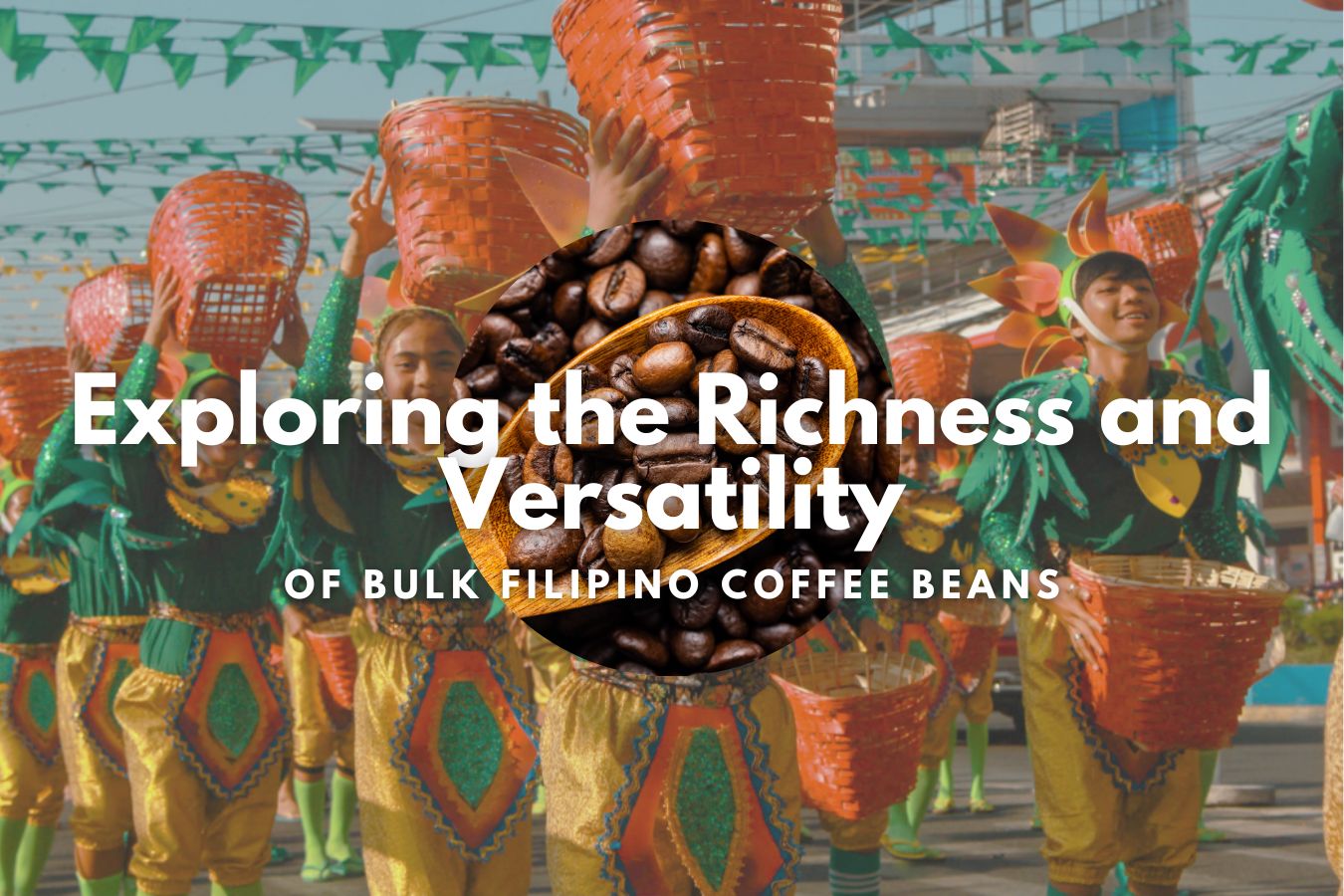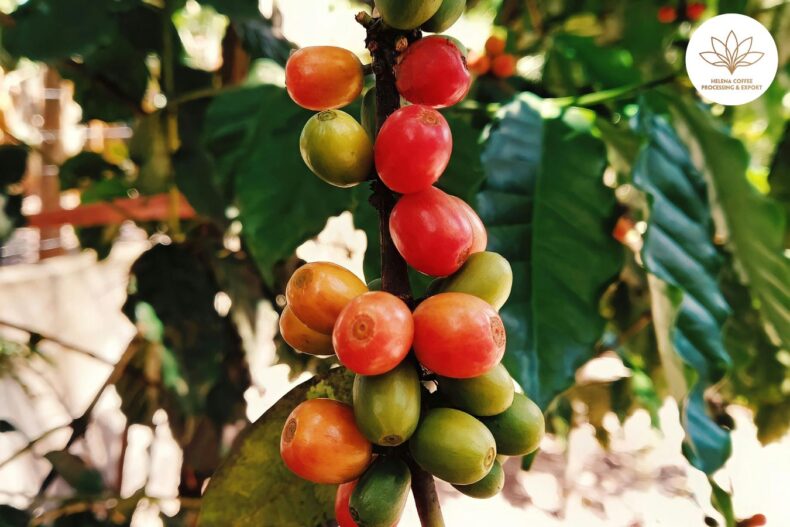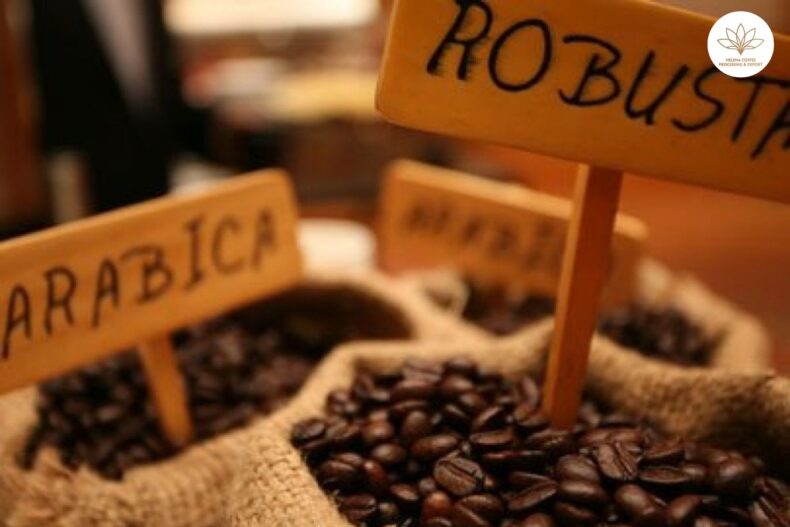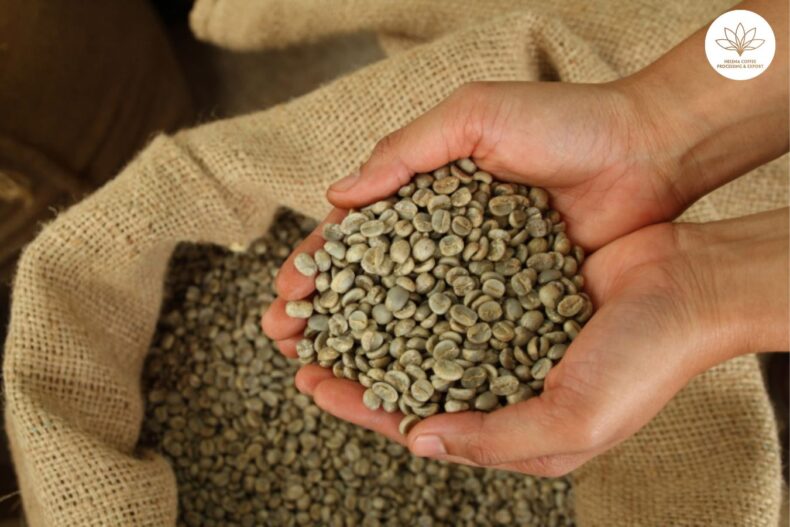
Coffee is a beloved beverage that fuels mornings, provides moments of relaxation, and brings people together. With its growing popularity, coffee enthusiasts increasingly seek unique and high-quality coffee beans from different regions worldwide.
One such region that has been gaining recognition for its exceptional coffee is the Philippines. In this article, we will delve into the world of bulk Filipino coffee beans, exploring their rich flavors, unique characteristics, and the burgeoning industry that supports their production.
The Diversity of Filipino Coffee
The Philippines, an archipelago with over 7,000 islands, offers various climates, elevations, and soil types. These factors contribute to the exceptional variety of coffee produced in the country. From Benguet’s rugged mountains to Batangas’s volcanic slopes and Bukidnon’s lush landscapes, each region offers its distinct flavor profiles, allowing coffee lovers to explore many tastes.
Flavor Profiles
Filipino coffee is known for its versatility and flavor complexity. The most common coffee varieties in the Philippines include Arabica, Robusta, and Excelsa. Arabica beans are cultivated in higher altitudes, resulting in a more delicate and nuanced flavor profile with hints of fruitiness, floral notes, and chocolate undertones.
Robusta beans, on the other hand, are grown at lower elevations and have a more robust and full-bodied taste, often exhibiting notes of dark chocolate, nuts, and earthiness. Excelsa beans, with their distinctive tart and fruity flavor, add a unique twist to blends.
Sustainable and Ethical Practices
The Filipino coffee industry places a strong emphasis on sustainability and ethical practices. Many coffee farmers in the Philippines adhere to traditional, environmentally friendly cultivation methods, such as shade-grown coffee, which helps preserve biodiversity and protects the natural habitat of various species. Fairtrade initiatives and direct trade models have gained momentum, ensuring farmers receive fair labor compensation and supporting their communities’ economic growth.
Supporting Local Communities
When you purchase bulk Filipino coffee beans, you are not just savoring a delightful cup of coffee but also supporting local communities and empowering small-scale farmers. Coffee cultivation provides a livelihood for many Filipino farmers, contributing to poverty alleviation and rural development. By investing in Filipino coffee, you become part of a sustainable supply chain that positively impacts the lives of those involved in its production.
Discovering Filipino Coffee Culture
The Philippines is known for its diverse and flavorful coffee beans and its vibrant coffee culture. Coffee plays a significant role in the daily lives of Filipinos, serving as a social lubricant, a source of comfort, and a way to connect with others. Let’s delve into the captivating world of Filipino coffee culture and its unique traditions.
Traditional Coffee Recipes
Filipino coffee culture encompasses a variety of traditional coffee recipes that have been passed down through generations. One such popular recipe is “kapeng barako,” which refers to the solid and aromatic coffee made from the Barako Liberica beans grown in Batangas. Kapeng Barako is typically brewed using a traditional Filipino coffee pot called a “barako” or a French press, resulting in a robust and flavorful cup of coffee.
Another beloved Filipino coffee recipe is “sikwate,” or table hot chocolate. Sikwate is made by dissolving tables, which are discs of pure cacao, in hot water or milk. It is often enjoyed with local delicacies like suman (rice cakes) or pandesal (bread rolls) for a delightful breakfast or snack experience.
Coffee Shops and Cafés
Filipino coffee culture has experienced a renaissance in recent years, with a growing number of specialty coffee shops and cafés nationwide. These establishments offer exceptional coffee and a cozy and inviting atmosphere for coffee enthusiasts to gather, work, or relax.
From third-wave coffee shops focusing on single-origin beans and artisanal brewing methods to quirky and themed cafés catering to diverse tastes, the Filipino coffee scene has something for everyone. These establishments often showcase local coffee beans, promote sustainable sourcing, and provide a platform for showcasing Filipino coffee craftsmanship.
Art of Brewing and Latte Art
In the Filipino coffee culture, the art of brewing is taken seriously. Coffee enthusiasts strive to master various brewing methods, such as pour-over, AeroPress, or espresso, to extract the best flavors from their beans. The emphasis is on precision, consistency, and attention to detail to achieve a perfect cup of coffee.
Additionally, latte art has become a popular form of self-expression in Filipino coffee culture. Skilled baristas create intricate designs and patterns on the surface of espresso-based drinks, turning a cup of coffee into a visual masterpiece. Latte art competitions and workshops are held, allowing baristas to showcase their talent and inspire others to appreciate the aesthetics of coffee.
Coffee Appreciation and Tastings
Filipino coffee culture encourages coffee appreciation and tastings, allowing one to explore different flavors, profiles, and origins of coffee. Cupping sessions, where participants taste and evaluate different coffees side by side, are held to develop sensory skills and deepen the understanding of coffee’s complexities.
Moreover, coffee cupping events and workshops allow coffee enthusiasts to learn about the journey of coffee from farm to cup, the impact of terroir on flavor, and the intricate process of roasting. These experiences foster a deeper connection to coffee, enabling individuals to appreciate the craftsmanship and dedication of those involved in its production.
Community and Connections
Coffee has a unique way of bringing people together, and this holds in Filipino coffee culture. Coffee shops serve as meeting places for friends, colleagues, and strangers to engage in conversations, share stories, and forge connections. It’s a space where people from all walks of life can gather, bond, and create lasting memories over coffee.
Furthermore, coffee communities and online platforms have emerged, allowing coffee enthusiasts to connect, exchange knowledge, and share their passion for coffee. These communities organize events, cuppings, and educational sessions, fostering a sense of camaraderie and a platform for learning and growth.
Finding and Sourcing Bulk Filipino Coffee Beans
If you’re intrigued by the flavors and stories behind Filipino coffee beans and wish to explore them further, there are several ways to source them in bulk. Local coffee cooperatives and organizations play a significant role in connecting coffee farmers with international buyers. They ensure fair trade practices and support small-scale farmers throughout the production process.
Additionally, online platforms and specialty coffee retailers have recognized the demand for Filipino coffee beans and now offer the convenience of purchasing them directly from the comfort of your home. These platforms often provide detailed information about the coffee’s origin, flavor profile, and processing methods, enabling you to make an informed choice based on your preferences.
Brewing and Enjoying Filipino Coffee
To fully appreciate the distinct flavors of Filipino coffee, it’s essential to brew it correctly. While there are various brewing methods, such as pour-over, French press, or espresso, the key is to experiment and find the one that best suits your taste.
For a traditional Filipino coffee experience, try brewing using the “kapeng barako” method. This method involves using a conventional Filipino coffee pot called a “barako” and brewing the coffee with its natural oils, producing a solid and robust cup. It’s popular for those who prefer a bolder and more intense coffee experience.
However, Filipino coffee beans are versatile enough to be enjoyed in numerous ways. Whether you prefer a smooth and balanced cup, a rich and bold espresso shot, or a unique coffee blend, the flavors of Filipino coffee can cater to a wide range of preferences and brewing techniques.
Sharing the Filipino Coffee Experience
Once you’ve brewed your Filipino coffee, take a moment to appreciate the flavors and aromas filling the air. Consider sharing this experience with friends, family, or fellow coffee enthusiasts, as Filipino coffee is best enjoyed when savored together.
Hosting a coffee-tasting session or gifting a bag of freshly roasted Filipino coffee beans can be an excellent way to introduce others to the diversity and richness of Filipino coffee. It opens up conversations about coffee culture, sustainability, and the stories behind the beans, further enhancing the coffee-drinking experience.
Conclusion
Bulk Filipino coffee beans offer an exciting and distinctive journey for coffee lovers seeking new flavors and experiences. From the diverse flavor profiles and sustainable practices to supporting local communities and immersing oneself in Filipino coffee culture, exploring Filipino coffee opens doors to a world of discovery and appreciation.
So, whether you’re a seasoned coffee enthusiast or curious to explore different coffee origins, don’t hesitate to dive into bulk Filipino coffee beans. Embark on a flavorful adventure and discover the hidden gems of the Philippines, one sip at a time.
FAQs
- What makes Filipino coffee beans unique? Filipino coffee beans are special due to the diverse climate, elevations, and soil types in the Philippines. These factors contribute to a wide range of flavor profiles, from delicate and nuanced Arabica beans to robust and full-bodied Robusta beans, providing a rich and versatile coffee experience.
- Where can I buy bulk Filipino coffee beans? You can purchase bulk Filipino coffee beans from local coffee cooperatives, online platforms specializing in coffee sales, and specialty coffee retailers. These sources ensure fair trade practices and provide information about the beans’ origin, flavor profile, and processing methods.
- How should I brew Filipino coffee beans? Filipino coffee beans can be brewed using various methods, such as pour-over, French press, or espresso. For a traditional Filipino coffee experience, try using the “kapeng barako” method, which involves brewing the coffee with its natural oils using a Filipino coffee pot called a “barako.” However, the brewing method can be adjusted based on personal preference to achieve the desired flavor and strength.
- Are Filipino coffee beans sustainable and ethically sourced? Yes, the Filipino coffee industry strongly emphasizes sustainability and ethical practices. Many coffee farmers in the Philippines employ environmentally friendly cultivation methods, such as shade-grown coffee, to preserve biodiversity. Additionally, fair trade initiatives and direct trade models ensure that farmers receive fair compensation for their labor, supporting their communities’ economic growth.


